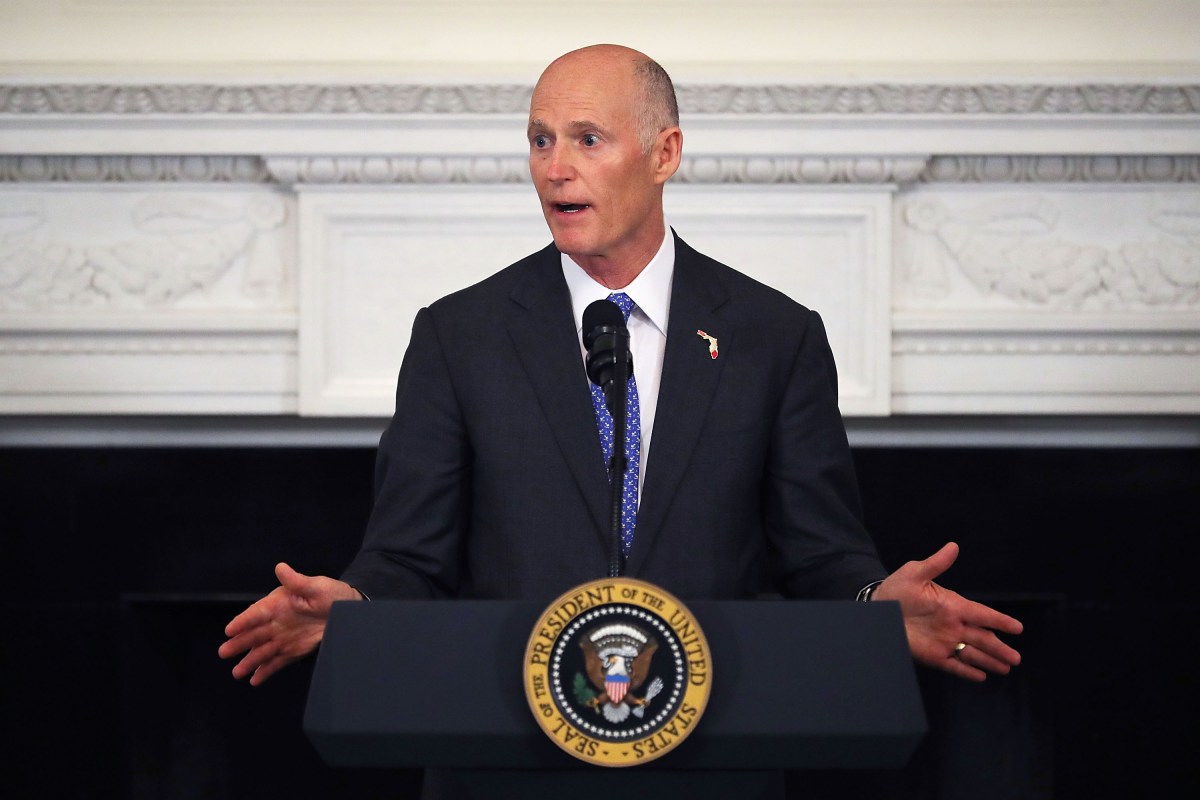Republican Governor Rick Scott and a few other members of his administration decide on the voting fate over 1.5 million Floridians who have lost the right because of a past felony conviction.
In the majority of states across America, the right to vote is restored to a person convicted of a crime upon his or her release from jail. Florida is one of just three states that imposes that restriction on its citizens for life — barring a successful appeal.
But that’s easier said than done.
Florida resident Sheila Holcomb waited a decade for her chance even though she spent no time behind bars for her minor theft conviction. Those who wish to try and return to the voting public have to wait until their parole time is up, too.
“I’d almost given up on it,” she said in an interview the day before the hearing, according to The Guardian, “and it could all change in a matter of months.”
When Floridians head to the polls to elect their representatives next month — including Scott, who’s running for a Senate seat — they’ll also decide if they’d like the state to change its voting law and allow all previously convicted people — minus those who served time for murder or sex offenses — the vote right away.
Currently, “former felons are now forced to wait between five and seven years after completing probation to lodge their application for clemency,” the news site reported.
At the end of her stressful day, Holcomb’s right was returned to her after Scott and others on his team voted, ironically, that she deserved it. Holcomb, however, said she won’t be casting her ballot for Scott come November.
Thanks for reading InsideHook. Sign up for our daily newsletter and be in the know.


















